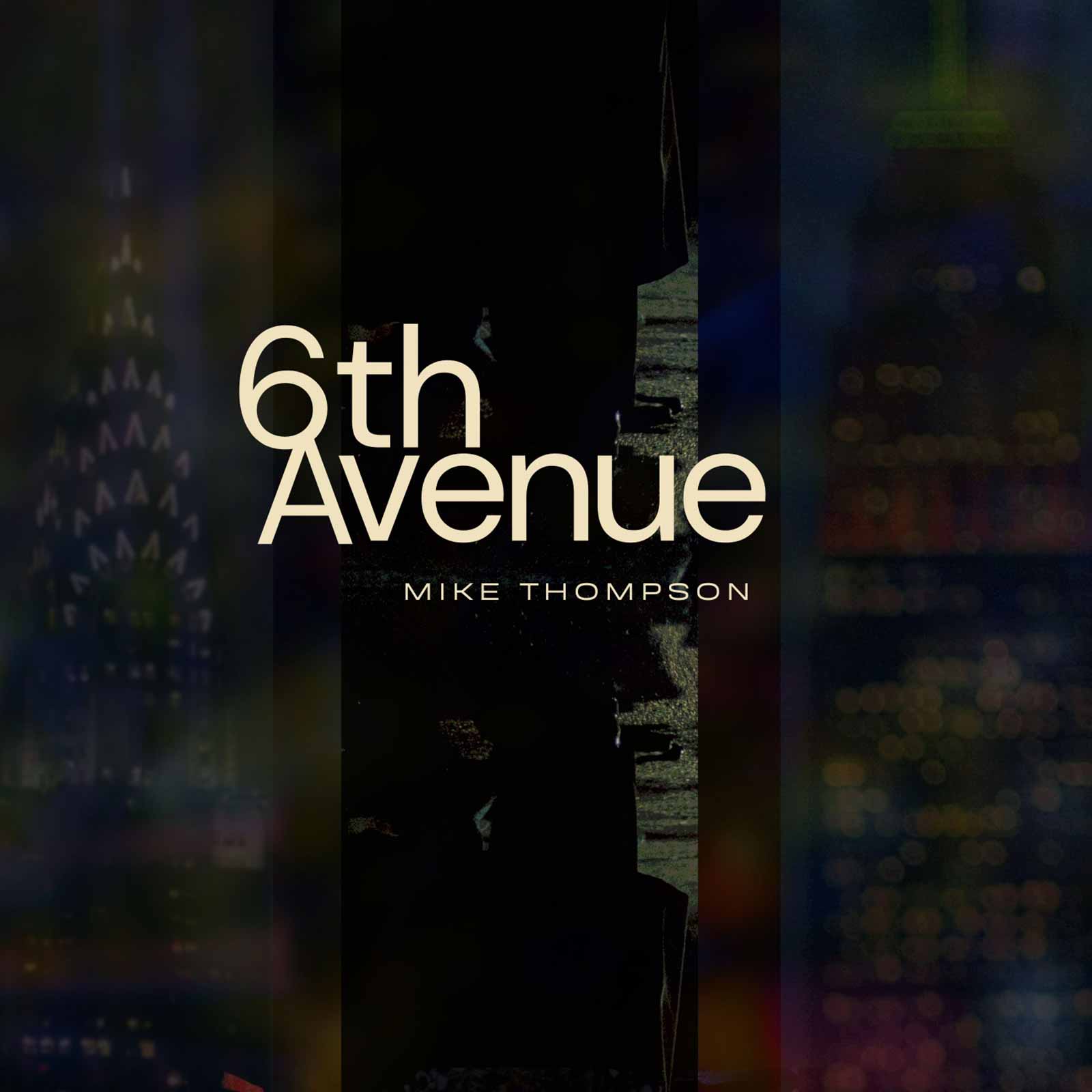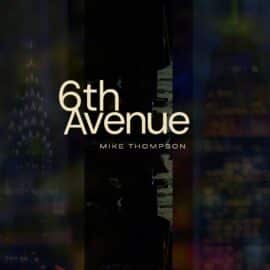| Jazz |

It’s rare these days to encounter a jazz album so unabashedly rooted in tradition, an album that seems to resist the gravitational pull of innovation in favor of revisiting, even revering, the past. But 6th AVENUE, the debut album by 26-year-old vibraphonist, composer, and arranger Mike Thompson, is precisely that: a loving, deliberate homage to the golden age of the big band, executed with a reverence that is both its strength and, at times, its limitation.
From the first track, the listener is immersed in a sonic landscape that feels unmistakably familiar, lush brass harmonies, tightly woven saxophone voicings, and rhythm section grooves that call back to a time when swing was not retro, but revolutionary. The album’s architecture is carefully balanced: six well-chosen standards from the Great American Songbook, Cole Porter, Antonio Carlos Jobim, and other towering figures, are set alongside four original compositions. Yet these original works, for all their polish and period accuracy, seldom break free of the stylistic gravity they emulate. In fact, they often feel as though they could have been lifted directly from a Broadway score in the early 1960s: tuneful, orchestrally rich, but strikingly conservative in both harmony and form.
The result is an album that is easy to admire and, in many moments, easy to enjoy, but one that rarely surprises. For those seeking the angular dissonance of modern jazz or the genre-defying experimentation that characterizes so many of today’s forward-thinking artists, 6th AVENUE may feel like a cul-de-sac, a well-manicured, handsomely lit one, but a cul-de-sac nonetheless.
Still, to focus solely on what this album is not would be to miss the real story of what it is. At its heart, 6th AVENUE is the story of a young composer with a deep respect for the orchestral lineage of jazz, a musician who, instead of chasing trends, has committed himself to mastering the discipline of large ensemble writing. And Thompson’s orchestrational voice, even in this debut, is unmistakably assured.
His commitment to craft can be traced back to his formative years. “From the very first class,” Thompson recalls of an early music composition seminar, “Nicholas told us he wrote for the Metropole Orchestra, the Boston Pops, and all these incredible ensembles.” That moment proved to be a catalyst. “At the time, I was already arranging for high school marching bands, but I had never written for a big band. I asked him where to begin if I wanted to write for an orchestra. He told me, ‘It all starts with the large ensembles.’ That stuck with me.”
Thompson took that advice to heart. 6th AVENUE was recorded live at Q Division Studios in Cambridge, Massachusetts, following just one rehearsal, a two-hour session held a week earlier in a local high school band room. It’s a logistical detail that makes the tightness of the performance all the more remarkable. The 17-piece ensemble, comprising five saxophonists, four trumpeters, four trombonists, and a four-piece rhythm section, features a roster of Boston jazz veterans, many of whom play regularly with the Backbeat Big Band, a fixture of the local scene with a standing Monday night residency at Backbeat Brewing Company in the warmer months.
The players bring warmth and professionalism to Thompson’s charts, which are full of shimmering brass textures and well-crafted ensemble moments. One could easily imagine some of these arrangements being performed in a film studio in the 1950s or in a television variety show from the pre-rock era. There is, to be sure, a kind of nostalgia operating here—not just for the repertoire, but for a time when jazz and popular song were more tightly intertwined, when melody and orchestration occupied center stage.
And yet, therein lies the rub. For all the technical brilliance on display, 6th AVENUE often feels emotionally safe, its pleasures more cerebral than visceral. The standards are beautifully rendered, but rarely reimagined. The original compositions, though impeccably structured, rarely challenge the listener’s expectations. The sequencing of the album, too, leans toward predictability, sometimes draining momentum from an otherwise skillfully executed program.
Which is not to say the album lacks merit, far from it. There is a quiet confidence in Thompson’s writing, a clarity of intent that speaks to his discipline as an arranger. He is not trying to reinvent the wheel; he is trying to show that the wheel, when polished and properly set, can still turn with grace.
For listeners who hold a deep affection for the big band tradition, who find joy in tight brass harmonies and the swing-era elegance of the American songbook, 6th AVENUE offers a satisfying, if somewhat cautious, journey. It’s a debut that demonstrates a high level of orchestral craftsmanship and an unwavering fidelity to form.
But for those craving the friction and fire of contemporary jazz, the kind that interrogates its own boundaries and risks failure in pursuit of something new, Thompson’s debut may feel like a missed opportunity. One can’t help but wonder what might happen if, in future projects, he allowed more room for risk, for dissonance, surprise, and spontaneity. Until then, 6th AVENUE stands as an impressively executed tribute to the past, and a respectful, if tentative, first step into the recording world.
Thierry De Clemensat
Member at Jazz Journalists Association
USA correspondent for Paris-Move and ABS magazine
Editor in chief – Bayou Blue Radio, Bayou Blue News
PARIS-MOVE, May 28th 2025
Follow PARIS-MOVE on X
::::::::::::::::::::::::
Tracklist:
All the Things You Are 5:52
Let’s Do It 5:42
Durango Drive 3:59
There Will Never Be Another You 6:55
Parisian Deception 7:08
Anything Goes 2:46
6th Avenue 5:07
Chega De Saudade 5:27
Someday My Prince Will Come 4:08
May 10:43
Arranged, conducted, and produced by Mike Thompson

